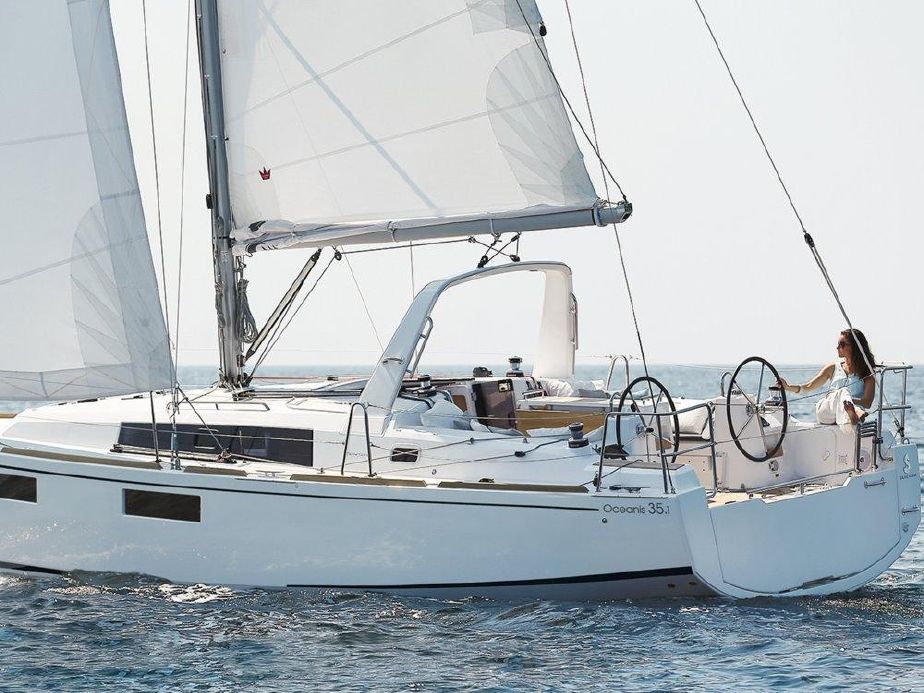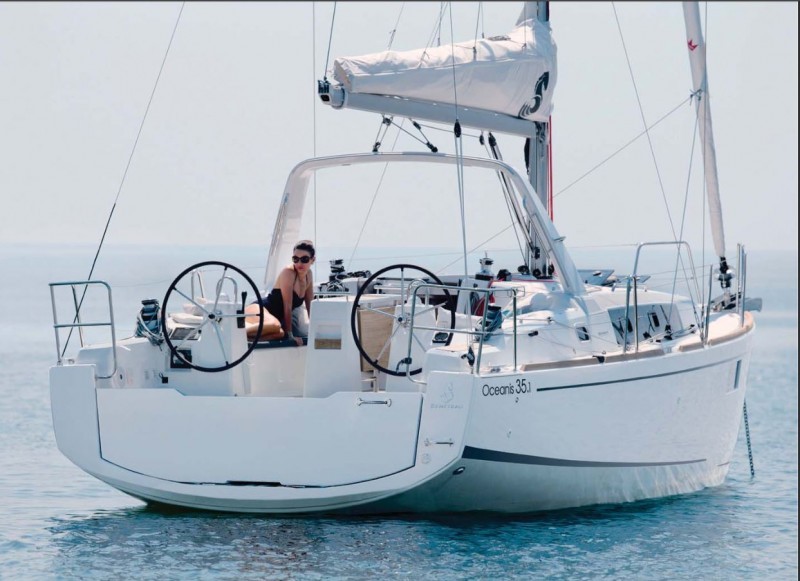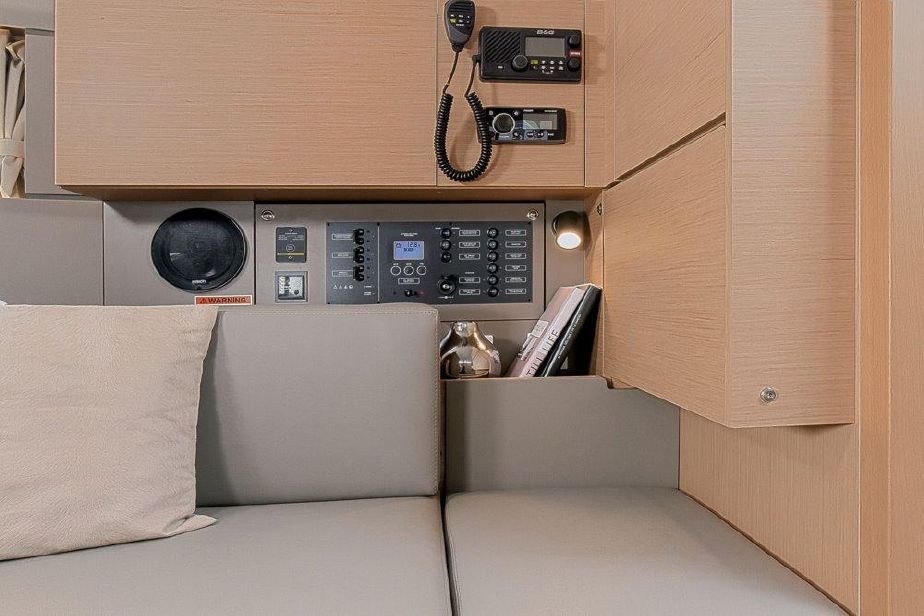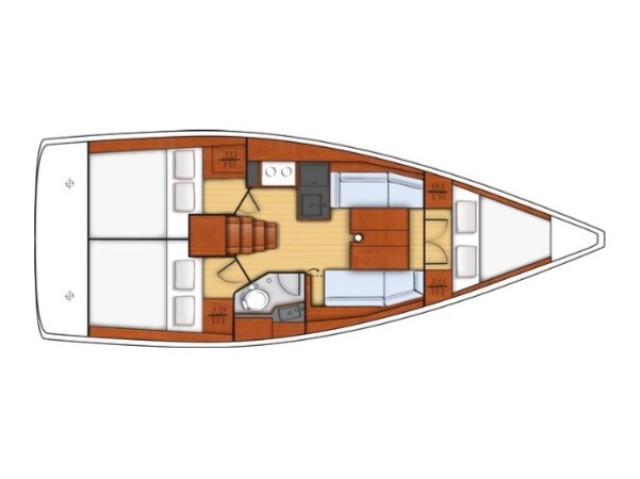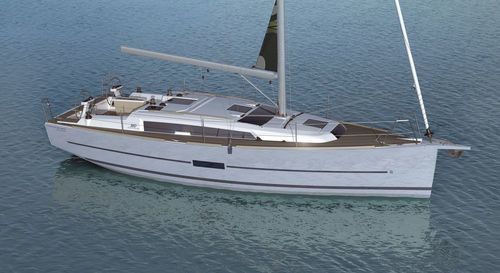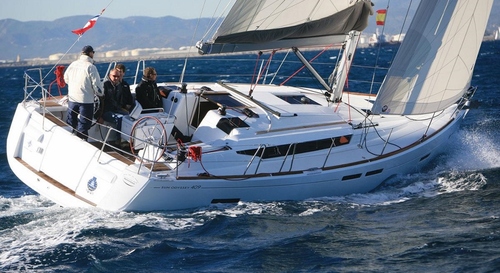RENTAL AGREEMENT - GENERAL CHARTER CONDITIONS
ARTICLE 1. THE RENTAL AGREEMENT
Lessor shall deliver to the recruitment of SHIP and not to conclude an agreement on the freight vessel for that period of time. Tenant agrees to take in the hiring of ship and make payments, advance payments, payment for delivery and return of the vessel, pay the deposit and other fees in cash settlement in due time or in advance, to the account specified in the Agreement.
ARTICLE 2. DELIVERY
Lessor shall at the beginning of the period to deliver the Chartered Vessel in Port of Delivery and Tenant agrees to take the vessel fully loaded and in working condition, suitable for swimming, fueled with fuel and water, clean and in good condition and fit for use, in the presence of all equipment, including modern equipment to ensure work safety, safety equipment (life jackets for children if at the time of hiring will be on board the children), in accordance with the requirements of the ship registration authority, in accordance with its size, type, allows the lessee to use the vessel in accordance with Article 13, which in the act of taking the yacht will be recorded in writing by the representative of the charter company and the Tenant. Lessee shall immediately after leaving the port to check the operation of all spacecraft systems, in the case of any doubt put the database manager to immediately notify and give the opportunity, if necessary, correct the problem. Landlord does not guarantee good performance of the vessel in bad weather conditions on all routes in the Navigation Area.
When you receive a tenant leaves the yacht as a guarantee to the Lessor for the period of lease of a ship mortgage, whose value depends on the class of the vessel and its size, to be ready to fully or partially compensate for any claims made by the Landlord subject to paragraph number 3, below. The agreed deposit will be returned to the Lessee as a result of compliance with the above conditions, after examining the vessel, its equipment and machinery manager database. In the case of registration of Tenant insurance: insurance charter deposit, the loss of collateral (if any occur) shall reimburse the insurance company under the terms of the contract with the Lessee's insurance company.
ARTICLE 3. RETURN SHIP
Lessee shall return the vessel to Port Return to the Lessor, and the vessel should not be burdened with debt Tenant that the latter could take over at the time the previous trip, in as good condition as at time of delivery of the vessel, with full gear and completely filled fuel, all the missing parts and damage caused to the ship (if such occur), the Tenant shall be entered in the minutes, which should be confirmed by an employee of the company while taking a yacht. The lessee may, if desired, return to the port return and make a landing before the end of the Charter Period, but the early repayment of the vessel does not give the Lessee the right to receive compensation. In that case, if the tenant leaves the vessel at any location other than defined by the contract, he must pay all costs incurred as a result of ferry vessel in place of return and reimburse expenses for any loss or damage is not secured by an insurance policy that may have occurred on a yacht and sailing boat during the rental period the Tenant.
ARTICLE 4. NAVIGATION AREA
The lessee is obliged to choose the route for sailing on a vessel in navigation zone and in accordance with its borders, within which the ship has a legal right to cruise.
ARTICLE 5. MAXIMUM NUMBER OF PEOPLE - RESPONSIBILITY FOR CHILDREN - HEALTH AND PASSENGERS CREW HIRE
a) The lessee has the right during the Charter Period permit the presence on board of persons, the total amount which will not exceed the maximum amount at the discretion of the Captain, plus some reasonable number of visitors during the stay.
b) If the vessel is carrying the children, the Lessee shall be fully responsible for their behavior and pastimes, no other crew member will not be responsible for their behavior and the vessel.
c) Swimming can have a detrimental effect on the physically unhealthy individuals or those undergoing treatment. At the conclusion of this Agreement, the Tenant ensures good health of all persons accompanying him on the voyage to this Agreement. Tenant and his crew are responsible to have all the necessary visas and vaccinations for the countries visited.
ARTICLE 6. LATE DELIVERY
a) If as a result of force majeure as described in Article 11 of the Landlord can not deliver the vessel to Port Tenant Delivery of the Vessel at the beginning of the Charter Period and delivery is made within 48 (forty eight) hours after the scheduled start of the Charter Period, thereby reducing Charter Period, the Lessor shall pay the Tenant compensation from the Chartered Payment in proportion to the rates, or if there was an agreement, Lessor shall extend the Charter Period (if there is a possibility of the Landlord) or Tenant shall have the right to cancel the contract and receive a refund the full cost of the charter. If the tenant wishes to make this article was valid, he shall immediately give written notice to the Lessor.
ARTICLE 7. DELAY RETURN SHIP
a) If the return of the Vessel is delayed due to force majeure, the return of the vessel must be made as soon as possible and in this period, the terms of this Agreement shall remain in force, but the tenant will not pay fines or surcharges.
b) If the tenant can not return the vessel to Port Return to the Lessor in connection with the Vessel of intentional delay or change of route, which argued against the captain, the Lessee shall pay Lessor by direct telegraphic transfer via count-Agent Organizer demurrage according to the daily rate plus forty (40) percent of the per diem rates, and if the delay in the return of the Vessel exceed twenty-four (24) hours, then Tenant shall reimburse Landlord damage incurred by the Lessor of the Vessel in connection with the inability to use the vessel refused to use it, or in connection with the delay in delivery of the next charter agreement.
ARTICLE 8. TERMINATION TENANT
If the Tenant notice of termination of the Agreement during or prior to commencement of the Charter Agreement, the Lessee is not exempt from the payment of money, which he must pay the Landlord and not paid on the date of termination. If notice of termination given to the Tenant or if the tenant can not pay the amount at the same time under this Agreement, it is treated as a waiver by the Lessor to pay the debt of Tenant and Landlord shall be entitled to retain the entire amount that was paid. If the landlord can take the ship to another person for the period and under the same conditions, the landlord keeps the 5% commission on the amount paid by Tenant and return the remaining amount of the Tenant.
In the case of an insurance policy issued Charterr ü cktrittsversicherung (insurance of non-charter) Lessee, there are rules set forth in the insurance policy and the damage that the Lessee is in default of rental boats are covered by the insurance company.
ARTICLE 9. FAILURE AND UNUSABLE VESSEL FOR USE
If, after delivery of the Vessel, it will be unusable due to equipment failure, stranding, accident, resulting in inability to use the vessel within forty-eight (48) consecutive hours, and this failure was not due to a violation of any provisions of the Agreement, the Lessor Lessee shall provide, or the same class or above another vessel, or to compensate for the amount of payment in proportion to the Chartered period of time during which the vessel will be unusable, or by mutual agreement, Charter Period shall be extended commensurate with the period during which the vessel was not suitable. If the tenant wishes to make this article was valid, he shall immediately give written notice to the Lessor and the Captain. Tenant shall bear the ordinary costs during the period when the vessel is unsuitable.
ARTICLE 10. USE OF VESSEL
Tenant agrees to maintain itself and ensures that its guests will conduct themselves in accordance with the laws and regulations adopted in those countries in whose waters the ship will sail during the term of this Agreement. The lessee shall ensure that, without the prior consent of the Lessor, the presence on board of pets and other animals will be prohibited. Tenant warrants that the behavior of his guests did not cause harm to others and not bring it into disrepute. Tenant and its guests are obliged to respect the members of the crew.
The captain is obliged to pay attention to the violation of the Lessee or his guests these conditions, and if the misconduct continues after the warning, he shall inform the Arendodatora, and the landlord may give the tenant written notice, terminate this Agreement.
If the Tenant or his guests violate laws or regulations of the country, resulting in any passenger ship will be detained, fined or imprisoned, or the vessel will be arrested or fined, the Lessee will compensate for all losses and damages and costs incurred by Lessor as a result of this, and Lessor shall have the right by giving written notice to the Tenant, terminate this Agreement.
In addition, it is established that possession or use of drugs is not permitted by law or weapons, except of the declared, on board the Vessel is prohibited. Violation of this condition is grounds for the Landlord to terminate the agreement without paying any compensation to Tenant, while Tenant may not claim a right of recourse.
Do not use the boat for racing and towing other vessels, except for cases of danger, or for purposes other than private recreation Tenant and his company.
Do not leave the port when a strong wind, and if the weather forecast predicts that the wind will be six on the Beaufort scale, or if the port authorities do not give permission for swimming, as well as, if boats are not eliminated damage, or without sufficient reserves of fuel, when weather conditions or the state of the yacht or its crew, as well as a combination of these factors may compromise the safety of the yacht and crew ..
If any accident or damage to the vessel, the Tenant shall require the authorities to a nearby port to verify damage or accident and the circumstances that resulted in this to happen, and make a written record and an official report, and also to inform the Lessor
ARTICLE 11. INSURANCE
a) The Lessor shall insure the vessel in a first-rate insurance companies on all the usual risks for vessels of this size and type, to cover damages in the amount provided for in Articles Yachting Act or other conditions that allow the resolution to the Charter
b) All such insurance shall be on such terms and in such amount that normally charged for a vessel of this size and class. Copies of all insurance documentation relating to the vessel, shall be submitted for the study of the Tenant on demand.
c) Under normal conditions, Tenant may incur costs only for those damages and losses that have arisen due to repair damage caused by the Tenant or his guests (both intentionally and otherwise) to the vessel or to any third party to the amount of deductible or excess of loss insurance Landlord's insurance policy for each individual case. However, in any case, the obligations of the Lessee shall not exceed the deductible amount (mortgage)
d) The lessee may have obligations in excess of deductibles or excess of loss as a result of misconduct by the Tenant or his guests (intentionally or unintentionally) by which the amount of insurance Landlord insurance policy has been limited or invalidated.
e) The Lessee provides insurance on their own, beyond the Landlord's insurance on the risks of the Vessel, and the fear of the costs associated with the loss of or damage to personal belongings, with care and disaster management.
e) The Lessee shall keep in mind that insurance is not included in this agreement, but must be coordinated and approved by the Parties.
ARTICLE 12. DEFINITIONS
In this Agreement, the term "force majeure" means events, actions, omissions, mistakes, accidents and natural disasters beyond the reasonable control of Lessee or Lessor (including strikes, lockouts, labor disputes, riots, insurrection, blockade, invasion , wars, fires, explosions, sabotage, storm, accident, grounding, fog, governmental act or regulation, major mechanical and electrical damage beyond the reasonable control of the crew and passengers, and not have occurred due to negligence of Lessor.
ARTICLE 13. CLAIMS
Lessee shall notify all the claims in the first Captain, or, if he manages the yacht tenant to notify the Lessor, all claims must be recorded with date, time, and their character.
However, if the claim can not be allowed on board and if the board is a means of communication and they are not damaged, Lessee shall immediately, within twenty-four (24) hours to notify the Lessor of the incident, in which the claim arose. First, the claim can be communicated verbally, but must then confirm the information in writing, by fax or by mail, just pointing out the nature of the claim.
ARTICLE 14. NOTICE
Any notice required to be given or shall be granted one of the Parties to the Agreement, shall be submitted in writing and deemed given upon confirmation of departure in the pre-paid postal address, or by reputable courier service, or fax, if the notice is addressed to the Lessor at the address specified in the agreement, or if addressed to Lessee at the address specified in this Agreement and, if possible - on board.
